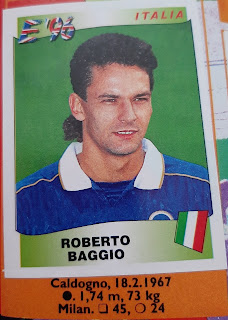472: Darren Caskey, Tottenham Hotspur, Merlin’s Premier League 95 Sticker Collection
Today Emlyn Jones takes a look at a man who, if Championship Manager had had its way, would have been the player to lead England to World Cup and European Championship glory on his way to a whole host of Ballon d’Or awards. Unfortunately the reality was rather more mundane but at least we get a look at some creative fan protests years before anyone decided a European Super League was a good idea. Over to Emlyn.
There are plenty of examples of unfulfilled potential in football, whether through attitude, unwise career moves or sadly, injury. The players considered among the best in their youth teams are not always the most successful. Examples would be Jason Koumas, Freddy Adu, and various members of the 'Class of 92'.
Darren Caskey started his career with Tottenham Hotspur, making his league debut in 1993 and captaining the England youth team to victory in the 1993 Under-18 European Championship. He was one of a long line of players to be touted as the new Glenn Hoddle, however, he was unable to cement himself in the Spurs' side and, after 32 appearances over three seasons, and a loan spell at Watford, he was snapped up by co-caretaker-player-managers Jimmy Quinn and Mick Gooding at Reading for a sum of £700,000. His first season was a struggle for Reading, with the club finally finishing in eighteenth place, sandwiched between local rivals Oxford United and Swindon Town, Caskey managing to find the net twice.
His second season with the club was also to be Reading's last at Elm Park, ahead of the move into their new 24,000 seat stadium for the 1998/99 season, and hope was high that Reading would have a strong season and then push on to bigger things in the new stadium, possibly reaching the promised land of the Premier League for the first time in our history. Unfortunately, Reading were relegated into the third tier in last place.
Less than two years into his Reading career, Caskey was already playing for his fifth manager. Despite hopes to spring straight back with a strong season in the Madejski Stadium, the team struggled under the new boss, Tommy Burns; he was able to secure an eleventh place finish in the old Division 2, but after a poor start to the new season was sacked in September 1999 and coach Alan Pardew took over. The team's struggles continued into the 1999/2000 season and fan displeasure grew as The Royals approached Christmas flirting with the drop zone, and in danger of dropping into the fourth tier for the first time in sixteen years. The fans on club forum Hob Nob Anyone? decided a message needed to be sent, and in order to dissuade any fan violence or pitch invasions, Players Are Not Trying Sufficiently day was mooted; PANTS day was born, an acronym crafting scenes worthy of C.R.I.M.E. A.I.D. or F.U.K.D. AND B.O.M.B.D.
A shade over 6,000 fans filed into the ground for the relegation scrap with Wrexham on 18 December. Pants were worn outside the trousers, and extra pairs waved in the air in order to demonstrate the displeasure at performances and hopefully send a message to the club hierarchy. Manager Pardew was unimpressed, and said that the players shouldn't have had to deal with it. Owner Sir John Madejski was somewhat more amused, purchasing some RFC branded boxers from the club shop to join in.
Ultimately, Reading were able to avoid relegation, helped in no short part by Caskey's seventeen league goals. He remained at the club the following season, and helped the club reach the play-offs, however Reading continued their (still ongoing) woeful record in play-off finals and lost 3-2 to Walsall in extra time. Caskey was one of a number of players released at the end of the season. He went on to enjoy spells at Notts County and Bristol City before drifting down the leagues and moving into coaching with Gateshead. It's fair to say that his career didn't follow the trajectory expected from the captain of the England youth team, and scorer of the winning goal in the 1993 final; especially when compared to some of his contemporaries in that side, which included Gary Neville, Sol Campbell, Paul Scholes and Robbie Fowler. Then again, tournament star Julian Joachim was described as 'the next Romario’. It just goes to show how circumstance and attitude can affect a player's development and that talent isn't always enough.





Comments
Post a Comment